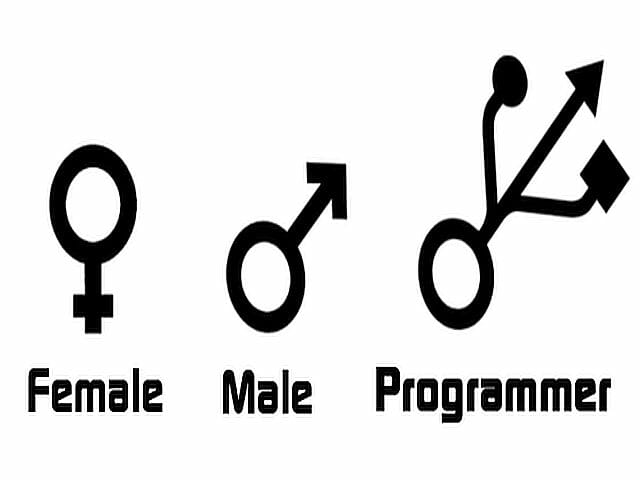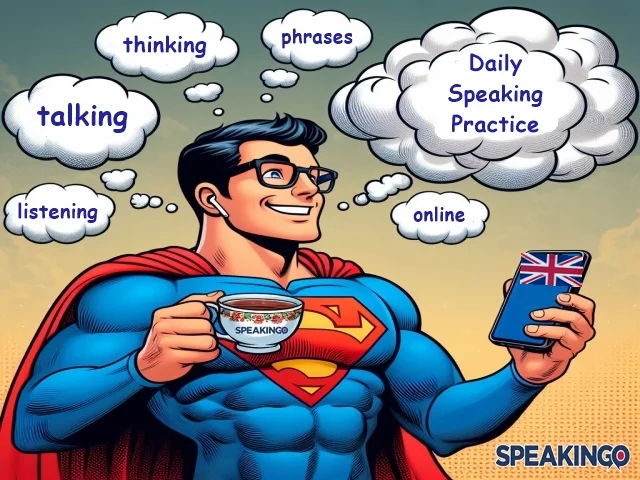Is learning English for IT professionals important? Is a good programmer enough with the few vocabulary words learned in computer games? Learn 4 reasons why you should learn English! And for dessert, an interview about English learning methods with a computer scientist and useful vocabulary for programmers.
Learning English for IT professionals
Is the ability to speak a foreign language a necessity in the profession of computer science and programming? Is it possible to code only in native language? Maybe all you need to do is learn a few patterns….
Of course, there will be some people who will say: anything is possible! Programming is repetitive formulas. It is enough to assimilate them, and further somehow it will be. Yes, in the local market you may be able to “bunker” without knowing English, although today most companies also carry out international projects. . However, if we want to deal with the subject professionally, there is no mercy. English for IT professionals is a must!
There’s no fooling around. English is ubiquitous in the IT industry. As much as we would like to, the IT industry will never lean toward polonization and local trends.
Therefore, there are at least four very good reasons to learn English, however. And finally, a “case study” (or case study in English ) – an interview with a Speakingo programmer and student.

1. Many IT commands are in English
Every command must be named somehow. Most of them got their names in English precisely. If you know English it turns out that you automatically know many commands!
If only in HTML:
- <table> – table
- <color> – color (note: we are using American notation here , in British it would be colour)
- <head> – head
- <body> – body
- <title> – title, name
Many commands are also easier to remember because they are abbreviations for English words.
For example:
- <p> from paragraph
- <div> from English division, block
- <b> from bold
- <and> from italics
- <ul> unordered list
…and so on, including in other programming languages. With knowledge of English, learning more programming languages becomes faster and more effective. I’m not even talking about the tutorials, books or websites themselves, but the actual commands of the various programming languages. Learning English for IT professionals turns out to be easier than for “normal” people!

2. The most popular programming language is…. English
Good code writing practices are based on English. This applies not only to the names of variables, classes, interfaces and functions, but above all the documentation should be in a universal language. The comprehensibility and clarity of an IT professional’s work is not only expressed in the readability of the code, but perhaps most importantly in the quality of the documentation surrounding it!
“Professionals write code that others understand” Robert C. Martin
If we can’t express ourselves accurately in English because we don’t fully understand it, our documentation will only complicate instead of simplify the task for other IT professionals.
What’s more, when we don’t speak English well, we too may have trouble properly reading even well-written documentation. If we are not proficient in English we will waste effort and time poring over the language layer and may not have enough “ram” to understand what the wretched documentation is all about!

3. Without learning English, you won’t deepen your IT knowledge
The IT industry is growing mainly in the United States. That’s where most of the theoretical knowledge in this area comes from. If you want to develop and stay up-to-date, it’s worth making friends with the English language, not just in the context of code design. Continuous learning is the key to success.
Even more so when it comes to an industry that is speeding along at rocket speed! New concepts and trends in programming are emerging every day. If you know English, you can access foreign tutorials, e-books, how-to guides and specialized literature.
There is no need to wait for someone to prepare a course on programming in the new technology in your native language – by then the technology may already be obsolete!

4. Working online for a foreign IT company
It is not worthwhile to close only to the local market. If you already know English, why not try to work in England too? The rates are high, and the demand in the market is huge. From what my programmer friends tell me, you earn more here, and the expectations of competence and workload are much lower. And at the same time you will polish your English!
Not to mention that even abroad, most software development companies require their employees to have a minimum intermediate level of language proficiency. Whatever we do, knowing a foreign language always means higher wages for the same position.
That’s why, in addition to an online programming course, you should think about an online English course at the same time!
Enroll in Speakingo’s online English course
English will not learn on its own!
Bottom line: the need for English language skills among IT professionals is undeniable in every respect. English gives IT professionals a wide scope for development, facilitates work and allows for a higher quality of activities performed.
Case Study: I want to speak English as well as I write in C#!
To keep it all from being too dry and theoretical below is a transcript of a conversation I had the pleasure of having with one of Speakingo’s students:
“I am not a programmer, engineer or IT specialist by training. I graduated from the humanities. During my education, I mainly focused on German. With English I’ve always been a bit at a loss. After leaving school, I searched for a long time for my own path. The turning point in my career was working at an interactive agency. I started out in customer service in the native market, moving to the marketing department and shyly peering at colleagues in the IT department. I felt attracted to it, however, I definitely did not know what to do with what.
When my colleagues and my bosses noticed my drive for programming, they recommended that I get down to education. I started with basic courses for programmers related to Java. Even then I knew that if I wanted to tackle the subject seriously, I had to brush up on my English.
Due to the fact that I put a lot of strength into learning the job, I wanted to find a non-invasive solution. I wanted a method that would allow me to acquire basic English phrases in a short period of time.
In addition to specialized vocabulary for programmers and repetitive key phrases, I wanted to learn to communicate freely. I knew that if I were to do programming, I would work mainly with clients from overseas.
I searched the entire web. I looked at the offerings of typical courses for programmers. Unfortunately, nothing about this issue was to my taste. Specialized training mainly allows for passive language learning. One that is used when writing code. Forging a few or a dozen phrases is no problem. Much more challenging is working with foreign companies.
In my experience, four aspects of learning English are very useful:

4 methods of learning English for IT professionals
Do a lot of listening and reading.
With finding publications on programming in English, you certainly won’t have a problem. E-books, industry conference records, blogs, hundreds of publications, guides – to choose from, to color. Even the English radio in the background at work makes the game! Instead, through reading specialized publications, you will learn industry vocabulary. Why cram? You will achieve the best results by assimilating knowledge in a specific context.
Focus your attention on speech.
If you want to communicate freely in cooperation with other companies and customers you must get rid of your speech block. This is what I’ve observed in many IT professionals – they understand a lot, but they can’t communicate.
How to learn it? Talk, talk, talk and more talk.
The best way to develop conversation skills? In my case, Speakingo’s online English course worked great. I used to sit down to my lessons in my spare time. Sometimes on a break at work, sometimes on a park bench. Regularly and with complete freedom.
In a very short period of time, I learned how to use various popular expressions in a non-invasive way. After a few weeks, I was able to speak English with everyone without any stress.
The course can be tested for free, so if you are not sure,
Just casually check if it’s right for you too.
English entertainment for developers.
Yes, yes – not by work alone does a man live. Programmers also sometimes feel like entertainment. Seriously. Three words: games, movies and series. Preferably ones with IT themes.
From myself, I can recommend the following titles: Silicon Valley, Community, Chuck, Doctor Who, The Big Bang Theory.
If you tell yourself that learning English is boring, you will never learn it. In order to really learn it, it is extremely important that you enjoy learning it yourself!”

Bonus. English vocabulary for IT professionals
You have to start somewhere, and as you know, the appetite grows as you eat. To get you in the mood to learn English for programmers, I have prepared a set of some vocabulary words you can pick up at the very beginning.
- analysis – study and consideration of data
- API – application programming interface (a set of rules for communication between computer programs)
- arise/arose/arisen – to appear (a word often used in situations where the programmer encounters a problem, it is an irregular verb)
- background – past events, or programs running in the background, that is at the same time
- cache – cache memory
- certification – documents confirming compliance with certain standards
- compatible – consistency determining the possibility of using, for example, two devices together
- deployment – running an artifact in an application, colloquially “put something on the server”
- develop – build, elaborate
- goals – the ends you want to achieve
- increase – to grow (used often during analysis)
- integrate – connect something
- matrix – an arrangement of numbers that are written in rows and columns
- source code management – the place where the project code is stored
- ticket – application registered in the system
- unit tests – tests written by developers that check a narrow slice of the system
However, let’s make a deal. If you are involved in programming professionally, you probably already know all these words! It is important now to learn to speak English fluently! Learning English for IT professionals is a must!
So try Speakingo’s free online English course, which uses speech recognition technology so you can talk to the computer like a teacher!
This proven learning method will solve your language!
And in your opinion, what vocabulary should be added to this list for IT professionals learning English? Is learning English for IT professionals important in your opinion? Write in the comments what words do you encounter in programming?























